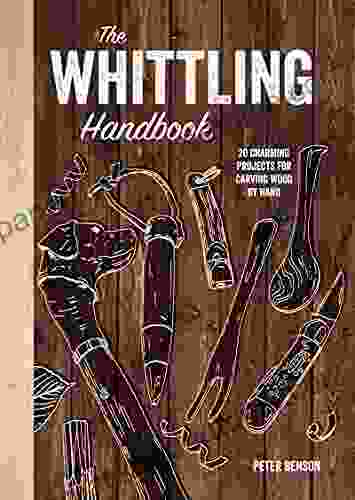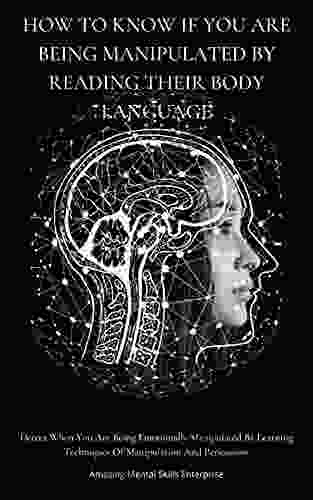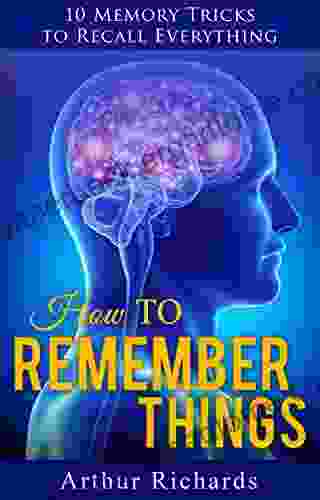How to Remember Things: The Ultimate Guide to Unlocking Your Superhuman Memory

: The Power of a Sharp Mind
In today's fast-paced world, it's more important than ever to have a sharp memory. From remembering names and faces to recalling key details in meetings or mastering new skills, a strong memory is essential for success in every aspect of life.
4 out of 5
| Language | : | English |
| File size | : | 1632 KB |
| Text-to-Speech | : | Enabled |
| Screen Reader | : | Supported |
| Enhanced typesetting | : | Enabled |
| Word Wise | : | Enabled |
| Print length | : | 30 pages |
| Lending | : | Enabled |
The good news is that improving your memory is not as difficult as you might think. With the right techniques and strategies, you can train your brain to remember more information, more efficiently and with greater accuracy.
Chapter 1: The Science Behind Memory
Before you delve into specific memory techniques, it's helpful to understand the basics of how memory works. Memory is the process of encoding, storing, and retrieving information. When you learn something new, your brain creates new connections between neurons. The more often you retrieve that information, the stronger those connections become.
There are two main types of memory: short-term and long-term. Short-term memory holds information for a few seconds or minutes, while long-term memory stores information for a much longer period of time. The goal of memory improvement techniques is to help you move information from short-term to long-term memory.
Chapter 2: Memory Techniques for Everyday Situations
Now that you understand the basics of memory, let's explore some practical techniques you can use to improve your recall skills in everyday situations.
- Chunking: Break down large pieces of information into smaller, more manageable chunks. For example, instead of trying to memorize a long phone number, break it down into smaller groups of digits.
- Spaced Repetition: Review information at increasingly spaced intervals. This helps strengthen the connections between neurons and makes the information more likely to stick in your memory.
- Mnemonics: Use memory aids such as acronyms, rhymes, or images to help you remember information. For example, the mnemonic "ROYGBIV" can help you remember the colors of the rainbow.
- Visualization: Create mental images of the information you want to remember. This helps to engage different parts of your brain and make the information more memorable.
- Active Recall: Regularly test yourself on the information you want to remember. This forces your brain to retrieve the information, which strengthens the memory.
Chapter 3: Advanced Memory Techniques
Once you've mastered the basics of memory improvement, you can explore more advanced techniques to take your memory skills to the next level.
- Method of Loci: Associate information with specific locations in a familiar environment. This helps create a mental map that you can use to retrieve information later.
- Memory Palaces: Create elaborate mental structures in your mind and place information within them. This technique can be used to memorize large amounts of information.
- Mnemonic Systems: Use specialized systems to encode information in a memorable way. These systems can be used to memorize anything from names and faces to historical events.
Chapter 4: Lifestyle Factors that Affect Memory
In addition to specific memory techniques, there are a number of lifestyle factors that can affect your memory.
- Sleep: Getting enough sleep is essential for memory consolidation. Aim for 7-8 hours of quality sleep each night.
- Exercise: Physical activity can improve blood flow to the brain and boost memory function. Aim for at least 30 minutes of moderate-intensity exercise most days of the week.
- Diet: Eating a healthy diet that is rich in fruits, vegetables, and whole grains can help support brain function and memory.
- Stress: Chronic stress can damage the hippocampus, a brain region that is essential for memory. Find healthy ways to manage stress, such as exercise, yoga, or meditation.
: The Path to a Superhuman Memory
Improving your memory is a journey, not a destination. With consistent effort and practice, you can train your brain to remember more information, more efficiently and with greater accuracy. The techniques outlined in this guide will help you unlock your superhuman memory and achieve success in all aspects of your life.
Remember, the path to a superhuman memory starts with a single step. Take the first step today and start mastering the art of remembrance.
4 out of 5
| Language | : | English |
| File size | : | 1632 KB |
| Text-to-Speech | : | Enabled |
| Screen Reader | : | Supported |
| Enhanced typesetting | : | Enabled |
| Word Wise | : | Enabled |
| Print length | : | 30 pages |
| Lending | : | Enabled |
Do you want to contribute by writing guest posts on this blog?
Please contact us and send us a resume of previous articles that you have written.
Light bulbAdvertise smarter! Our strategic ad space ensures maximum exposure. Reserve your spot today!

 Stephen FosterUnleash Your Inner Artist: 20 Captivating Projects for Carving Wood by Hand
Stephen FosterUnleash Your Inner Artist: 20 Captivating Projects for Carving Wood by Hand
 Greg FosterThe Ultimate Guide to Cannabis in Medicine: Harnessing the Power of Nature's...
Greg FosterThe Ultimate Guide to Cannabis in Medicine: Harnessing the Power of Nature's... Dennis HayesFollow ·15.4k
Dennis HayesFollow ·15.4k Colt SimmonsFollow ·4.7k
Colt SimmonsFollow ·4.7k Devin CoxFollow ·18.9k
Devin CoxFollow ·18.9k Gene SimmonsFollow ·11.8k
Gene SimmonsFollow ·11.8k Cooper BellFollow ·3.1k
Cooper BellFollow ·3.1k Joseph FosterFollow ·9.7k
Joseph FosterFollow ·9.7k Benjamin StoneFollow ·15.8k
Benjamin StoneFollow ·15.8k Gavin MitchellFollow ·3.6k
Gavin MitchellFollow ·3.6k

 Isaiah Powell
Isaiah PowellWisconsin Clinic Pilots Mobile Crisis Response System For...
MADISON, Wis. - A new mobile crisis...

 Daniel Knight
Daniel KnightUnleash Your Creativity: A Masterclass in Fabulous Nail...
Embellish Your Fingertips with Captivating...

 Clark Campbell
Clark CampbellDetect When You Are Being Emotionally Manipulated By...
Emotional manipulation is a subtle but...

 Eli Brooks
Eli BrooksNeurological Disorders Papers: Dissociative Identity...
What is Dissociative...

 Ricky Bell
Ricky BellAn Introduction to Islam for Jews: Unveiling the Tapestry...
A Bridge of Understanding: Exploring Islam for...

 Octavio Paz
Octavio PazAchieving Longevity: The Complete Step-by-Step Guide to...
**** In the ever-evolving landscape of health...
4 out of 5
| Language | : | English |
| File size | : | 1632 KB |
| Text-to-Speech | : | Enabled |
| Screen Reader | : | Supported |
| Enhanced typesetting | : | Enabled |
| Word Wise | : | Enabled |
| Print length | : | 30 pages |
| Lending | : | Enabled |














































